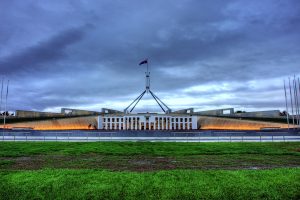 The following commentary piece is penned by Steve Knott AM, Chief Executive of the Australian Resources & Energy Employer Association
The following commentary piece is penned by Steve Knott AM, Chief Executive of the Australian Resources & Energy Employer Association
Like many other major employer groups, the Australian Resources and Energy Employers Association (AREEA) is no fan of many of the recent changes the Albanese Government has made to Australia’s industrial relations laws.
For example, in late 2022 AREEA was the sole employer group that ran a public advertising campaign opposing ALP plans to extend multi-employer bargaining beyond low paid sectors.
While this campaign was unsuccessful, it did serve to elevate more active engagement by other employer groups in reviewing the business implications of the Government’s next wave of industrial relations legislative changes.
The Government’s legislative success on broadening their pre-election position on multi-employer bargaining was also a stark reminder to AREEA and others that Australia is a representative democracy.
Put simply, at the last election on 21 May 2022 the Australian voters gave the ALP a majority of seats in our parliament’s lower house.
They needed 76 for a majority; last year they held 78 and even if they lose the upcoming Dunkley by-election on 2 March, they will still command a lower house majority.
Despite the pre-Christmas protests and associated pantomime of attention-grabbing MPs, given this majority, the ALP passing the first tranche of their Closing Loopholes Bill in the lower house, was all but guaranteed.
For their IR Bill to become law it also had to pass the Senate.
Prior to this legislation passing the Senate in December, AREEA was on the public record stating that the ALP securing the sole crossbench senator they needed to support their Bill was tantamount to a walk in the park, as indeed it proved to be.
This assessment was based on both IR legislative voting records and AREEA’s direct consultations with key crossbench senators.
Having met with an array of senators, it didn’t require Sherlock Holmes to deduce more than one would be voting in support of the Government’s first tranche of their Closing Loopholes Bill.
Not only did Workplace Relations Minister Burke secure the sole crossbench senator needed, but he also secured the support of two others. The three that supported the Government’s IR changes were David Pocock, Jackie Lambie and Tammy Tyrell.
Further, if required, it wasn’t beyond the Government’s remit to secure additional crossbench senator support.
When the Minister rang me on the morning of the 7th of December to advise that he had secured senate support to pass their legislation, to cue surprise would’ve been disingenuous. Their legislation passed later that day.
What was surprising was shrill commentary from some of the other business representative groups, some with limited IR expertise, who hitched their entire IR advocacy wagon to a ‘Kill the Closing Loopholes Bill’ campaign.
As outlined, given the composition of the parliament, there was more chance of finding a one ended stick than this approach being successful.
Due to such political realities, in June last year AREEA requested the Minister to meet a high-level delegation of AREEA’s service contractor members. A request the Minister accepted.
Addressing the National Press Club in August, Minister Burke stated that this delegation persuaded him to ensure legitimate service contractors were not inadvertently caught up with their proposed same job same pay labour hire reforms.
These service contractors are major employers with specialist expertise, they employ their own employees, have their own supervision, equipment, and enterprise agreements in place; the case for their exclusion was compelling.
There was also the issue of retrospective and unforeseen higher leave liability issues for labour hire entities.
The negotiations here were not straightforward. On several occasions it appeared consultations would not bear fruit. Legislative drafting processes were complex and required extensive review.
 It took a further three months before the Minister and AREEA reached a landing on amendments in both areas.
It took a further three months before the Minister and AREEA reached a landing on amendments in both areas.
This would not have been possible without the Minister, his Department and AREEA’s direct, continuous, and good faith engagement.
AREEA’s members, aware of the Senate realities, were directly and indirectly involved in AREEA’s IR engagement and consultation processes with Government.
Whether opposing or supporting future industrial relations changes, being at the negotiating table had some prospect of some upside, as it did for AREEA’s major service contractor and labour hire members.
Today the Government will pass their final tranche of their Closing Loopholes Bill.
While the impact of these changes will not be immediate, administration, compliance and IR transaction costs will be a slow adverse burn and not welcomed by employers.
The bigger issue for employers however will be to ensure their people engagement and leadership systems are in good shape.
At a political level, tax reform and industrial relations will be key focus areas in the lead up to the next election.
Expect too the LNP Coalition, after being “IR reform shy” post WorkChoices and the 2007 election loss, to return to the IR policy space as a key point of difference in the lead up to the next election.
It is well documented Australia’s productivity is poor and the current low unemployment rate in part is due to more people being employed to achieve the same output.
When the commodity cycle changes as is occurring in nickel mines at present, our productivity performance will come under increasing scrutiny.
As this occurs, it’s hard to find anyone in the employer community who believes the Closing Loopholes legislation will not add to this challenge.



